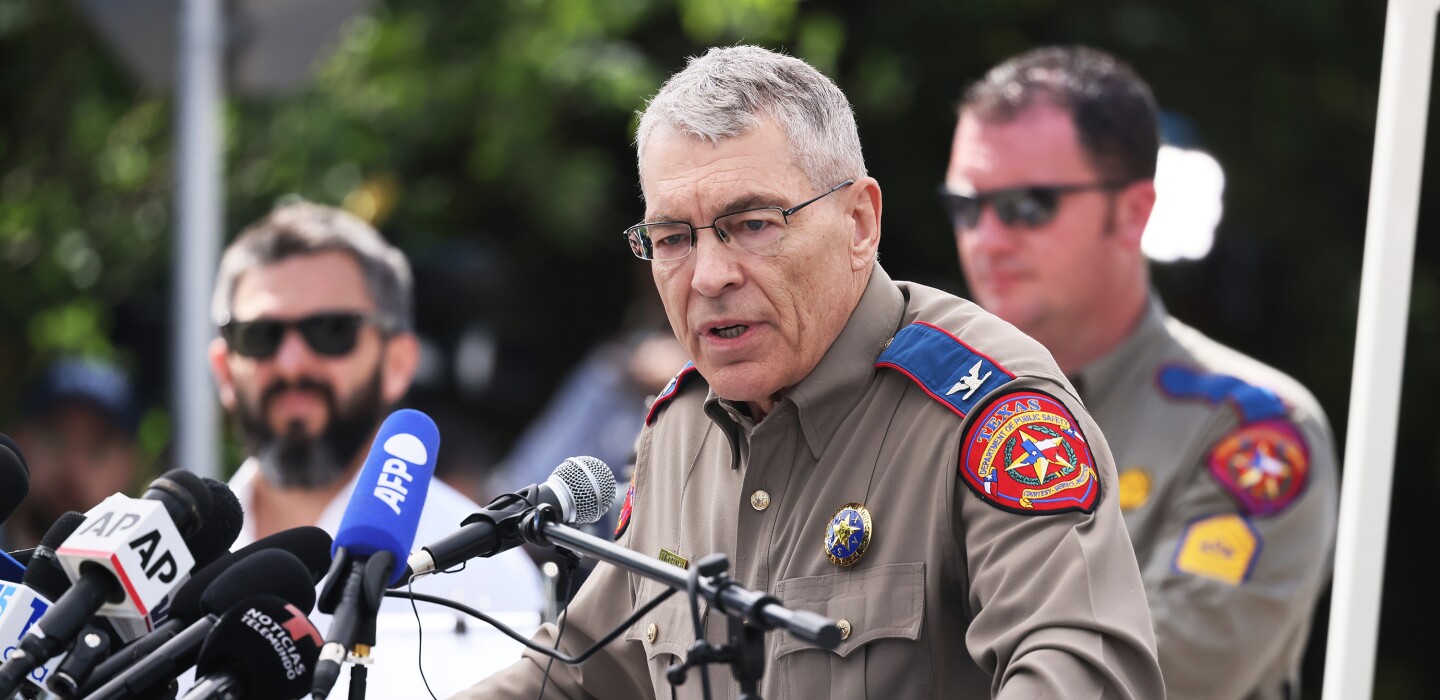
Uvalde Survivors Will ‘Never Recover’ From Robb Shooting
The story of Robb Elementary School in Uvalde, Texas, is a familiar one: In May 2022, an 18-year-old armed man entered the school through a propped-open door and began firing at students and teachers.
When he was done, some 77 minutes later, he had killed 19 of the students and two teachers. They were sitting ducks as police, including school police and local law enforcement officers, waited.
“An abject failure” was the assessment of the response, no surprise to public safety officials everywhere. But it was the result of a U.S. Department of Justice review that had personnel from the agency’s Community Oriented Policing Services painstakingly going over the facts via video, interviews, photos and thousands of pieces of data. The process left the reviewers changed. Uvalde, a small border town where a large proportion of residents work for local or federal law enforcement, is too changed forever.
Three members of the DOJ panel this week discussed their review process on a webinar hosted by ZeroNow, a think tank working to make schools safer. The key point was that this was a failure of both school police and local law enforcement, and especially a failure to prepare for such an event.
And that the devastating result won’t — and can’t — be forgotten in such a close-knit community with such strong ties to law enforcement.
“From a law enforcement perspective, there was definitely a lack of preplanning, coordination and training for a multi-agency response,” said Orange County, Fla., Sheriff John Mina during the webinar. “Anytime you have a mass shooting, especially at a school, there’s always going to be a multi-agency response, and agencies within that area need to train together, and it didn’t happen in this case.”
In fact, local law enforcement in Uvalde was unfamiliar with the lockdown procedures and policies at the school, and when they found quiet classrooms, they falsely assumed that no students were in those classrooms. That’s one theory as to why they waited for 77 minutes to enter. They incorrectly assumed the situation was no longer active and that the subject had barricaded himself.
Another theory, one that the DOJ panel could find little evidence of, is that law enforcement thought the commotion initially coming from the school was from what they call a “bailout.” Since Uvalde is close to the U.S. border with Mexico, often there are people trying to escape the border crossing and running and being chased by officers from U.S. Customs and Border Protection.
“Initially, when the calls were occurring and the lockdown started there was this thought that there might be a bailout occurring,” said Nazmia Comrie, a sociologist working for the DOJ on police and justice reform.
That could have led to complacency of law enforcement. Comrie said research into how often the bailouts occurred and if that could have caused the complacency couldn’t be confirmed.
She reiterated that this was not an investigation into what happened at Robb Elementary, but a review.
“We wanted to ensure we provided an authoritative accounting of what occurred that day as well as the days leading up to it and following it,” Comrie said. “We wanted to identify lessons learned, and at the top of our minds was to help honor the victims and survivors of Robb Elementary School.”
The team collected 14,000 pieces of evidence and conducted more than 260 interviews over the nine times it was in Uvalde. Hearing from loved ones, first responders and others took a toll on the review team.
“Specifically for that community, it was a very tough situation to be in,” Mark Lomax, director of campus safety at George School in Pennsylvania and a member of the DOJ review panel, told Emergency Management. “It’s a first responder community a very small community and somebody knows somebody who went to the school or is related in some way.”
Lomax said it’s guaranteed that when a first responder responds to such a tragedy, it will affect them for life. The fact that it was such a close, small community and that law enforcement has been blamed for not being prepared and not going in sooner adds another layer of grief.
“In my personal experience and through this investigation and other investigations, you never recover,” Lomax said. “You just deal with the tragedy that will always be a part of your DNA. How you go on in life depends on the individual.”


Average Rating